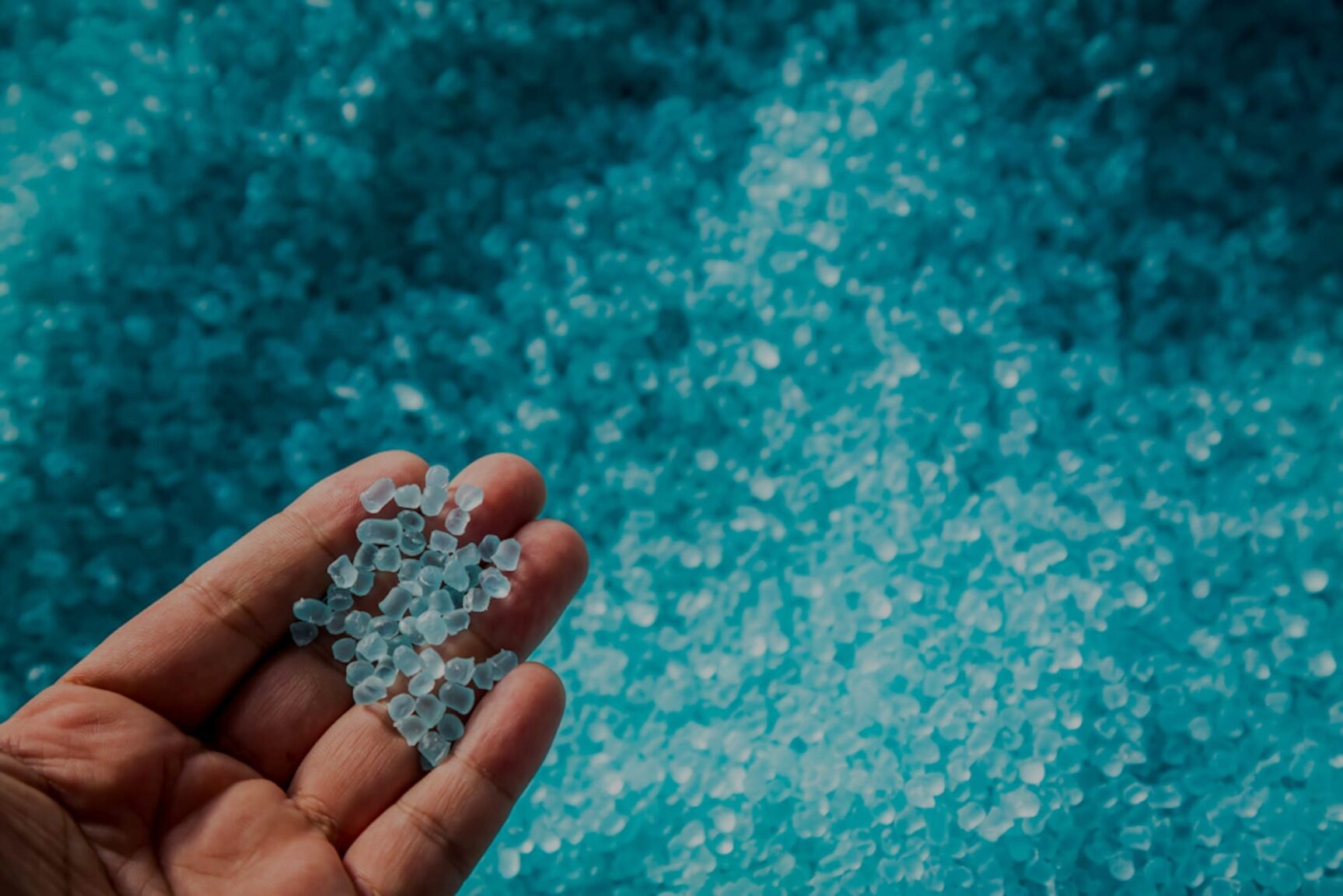

Previously published on fastradius.com on August 5, 2021
Polystyrene, abbreviated as PS, most commonly comes in two forms — foam, also known as expanded or extruded polystyrene, and rigid, solid plastic. These two forms of PS do not exhibit the same physical properties and have different applications as a result. This article will focus on two common types of polystyrene that SyBridge offers, solid and molded polystyrene.
Solid PS is a naturally transparent plastic that is also lightweight and inexpensive to manufacture. These qualities contribute to polystyrene’s popularity across industries, ranging from household products to manufacturing and machinery. PS can be mixed with additives and blended or copolymerized with other plastics to improve its material properties. This also makes PS very compatible with injection molding.
Polystyrene can be a thermoplastic or thermoset material depending on its polymeric arrangement. Thermosets cannot be remelted after initial forming, but thermoplastics can be melted and reused many times over. For this reason, thermoplastic PS can be used in injection molding and subsequently recycled.
The two most commonly used kinds of standard solid plastic polystyrene are:
Polystyrene is non-toxic, odorless, and lightweight, making it very popular for food packaging applications. It also has high impact strength and good dimensional stability.
Here are some of the typical mechanical specifications for high-impact polystyrene:
One disadvantage of polystyrene is its poor chemical resistance. While this quality makes PS long-lasting in natural environments, it also makes PS nonbiodegradable. Polystyrene will, however, dissolve somewhat rapidly when put in contact with chlorinated solvents and other hydrocarbon substances. Another key disadvantage of molded PS is its brittle nature.
Polystyrene has incredible dimensional stability, enhanced by the material’s water resistance, which allows it to remain consistent in size and shape despite varying external conditions. Polystyrene is also FDA compliant, meaning it is certified safe for use with food and beverage. In addition, PS is inexpensive and readily available.
Solid plastic PS is commonly used to make medical products like Petri dishes or test tubes, but it can also be found in common household products like yogurt containers, smoke detector housings, and red Solo cups. You can also find polystyrene in automotive and electrical components and electronics. PS’s transparency also makes it an excellent choice for optic applications like lighting fixtures.
Polystyrene can be used to create living hinges, which are also often made from polypropylene. Butterfly hinges and snap closures are far more easily thermoformed with molded polystyrene than polypropylene, and PS hinges keep their shape despite repeated movement.
Polystyrene is a durable yet lightweight plastic with incredible customization opportunities. Boasting various types with their own unique benefits and applications, polystyrene components withstand stress well and remain dimensionally stable. When it comes to choosing the best PS form for a particular application, product teams must do their research – though making these decisions is simpler with the help of a trusted manufacturing partner like SyBridge.
At SyBridge, we leverage our years of manufacturing experience to help you confidently design and manufacture your products. We can offer you in-depth, unbiased information throughout every stage of the creation process, helping you achieve your most innovative designs. If you think solid or molded polystyrene is the right material for your next project, contact us and discover what’s possible.
Forget typical cycle times. We're pushing the boundaries of conformal cooling. While traditional approaches deliver…
Forget typical cycle times. We're pushing the boundaries of conformal cooling. While traditional approaches deliver…
From left to right: Brayden Janak (apprentice); Logan Vifaquain (CNC machining, Programming and CMM); Ron…
SyBridge Technologies is proud to announce we have been awarded the 2023 General Motors Supplier…
Today, designers and engineers are accustomed to working with digital tools in their day-to-day jobs.…
Optimizing Your Injection Molding Process for Cost-Effective Manufacturing Excellence In today’s competitive landscape, manufacturers are…